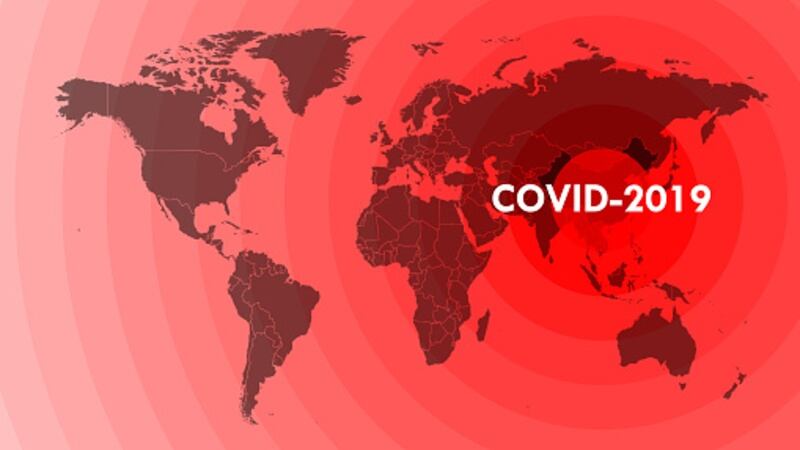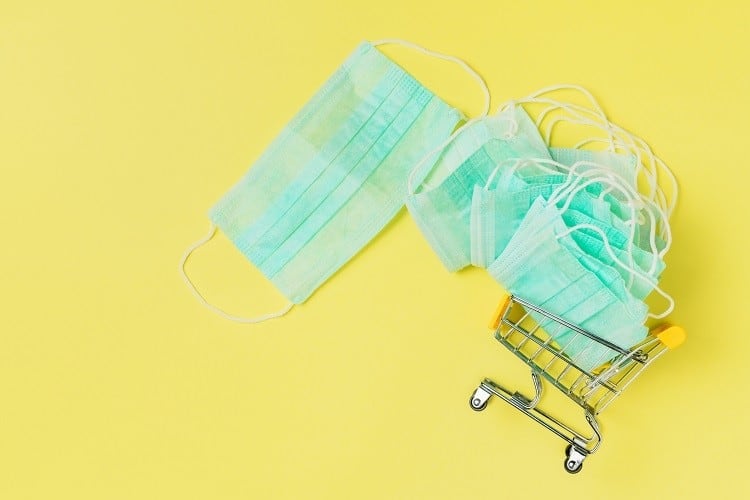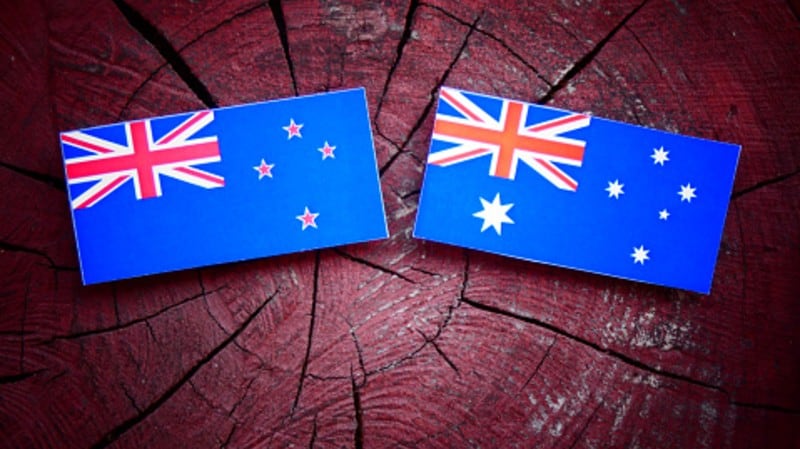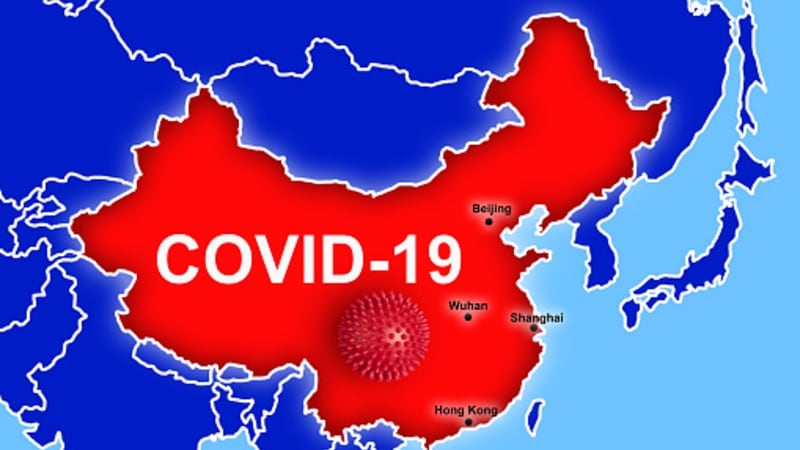Our previous round-up on the response of ASEAN countries saw many of these just imposing and adjusting to national or regional lockdowns in hopes of controlling the COVID-19 spread, which also led to widespread panic-buying by the public in fear of food shortages.
Two weeks on, the pandemic has shown little sign of slowing, and although panic-buying and artificial food shortage concerns have eased, a new challenge has emerged in the form of ‘protectionist measures’, where countries move to implement trade barriers such as commodity export bans in hopes of protecting local food supply.
“In the ASEAN region, food systems remain highly interdependent – and disruption to any part of it will have unforeseen knock-on effects,” Food Industry Asia (FIA) Executive Director Matt Kovac said.
“Across ASEAN, countries already face food security challenges as well as current measures in containing COVID-19. [Where] we could see more pressure moving forward is if countries implement ‘protectionist policies’, which has already occurred in some markets.
“There is compelling evidence that eliminating or restricting choice or other fiscal disincentives have little or no impact on food security at the best of times. Food security needs better trade relations, particularly during a global pandemic.”
In addition, Kovac has called for production functions across the food supply chain and workers at every level to be considered ‘absolutely essential’ or 'critical infrastructure', at the same level as healthcare, whether it be transportation workers, manufacturing site workers and even shelf stockers.
“This is especially critical as the food supply chain is a complex web that involves producers, agricultural inputs, transportation, other logistics, availability of workers and so much more,” he said.
International Potato Center Asia Regional Director Samarendu Mohanty concurred with Kovac, telling us in a separate interview that: “Border closures and trade restrictions are not going to solve any problems.”
“No one country is going to be able to remain insulated from this even by closing borders – it is highly likely to backfire as stocks will run out and prices driven up within the border anyway.
“[Although] protectionist hardliners will definitely use this as a perfect launching pad to garner support for their cause, it is a dangerous way of thinking [as there are potential long-lasting effects to this.
“[These could] lead to a permanent reversal of globalisation of agriculture with the reintroduction of non-tariff barriers, such as quotas and other quantitative restrictions [and] serious adverse effects such as higher food prices in food-importing countries, less consumption diversity and greater food and nutrition insecurity among the poor.”
In short, although the previous food supply shortages were artificial ones created by panic-buying and hoarding, if such self-preservation restrictions become the norm for every country, the likelihood is high that the shortages – as well as other adverse effects - will become a reality not just for the ASEAN region, but also worldwide.
ASEAN COVID-19 updates
Indonesia
Indonesia announced a state of emergency in March and implemented partial lockdown measures on April 10, although President Joko Widodo has so far been resistant to a full national lockdown.
The country is facing a key challenge in the form of rising food staple prices, such as sugar, onions and garlic, which it has attempted to resolve by relaxing import restrictions.
According to the National Strategic Food Price Information Center (PIHPS), garlic prices were already on the rise even before the tightened measures – these almost doubled in March from around IDR25,000 (US$1.58) to IDR44,450 (US$2.81) per kilogramme, whereas the local sugar prices have risen over 23% to hit IDR18,450 (US$1.17).
Vegetable and Fruit Importers and Exporters Association data showed brown onion prices almost tripled from INR62,500 (US$3.95) to INR170,000 (US$10.75) per kilogramme. The price of salt is also at risk as local production has dropped due to the crisis.
Imports have been slow to enter Indonesia and are expected to slow even more due to the recent partial lockdown measures, but Widodo has confidently promised locals that prices will stabilise ahead of the Ramadan festive season later this month.
“For sugar, I received a report from the Minister of Agriculture that it will go down to normal conditions next week, which is IDR12,500 (US$0.79) per kg. We expect garlic next week or hopefully this week, to return to normal at IDR20,000 (US$1.26) to IDR30,000 (1.90) per kg,” he told Tempo.
COVID-19 related deaths in Indonesia are the second-highest in Asia, behind only China, but the government is still unwilling to impose a full lockdown as Widodo has said this would be most detrimental for the poor population.
Indonesia’s COVID-19 task force head Doni Monardo said at a high-level meeting that: “Imagine if the President had decided to impose a lockdown on the country. The National Disaster Mitigation Agency [BNPB] would have been overwhelmed by now, as this would have meant it had to distribute goods to hundreds of millions of residents nationwide.”
Philippines
The Philippines has full lockdown measures imposed on its largest island, Luzon, which also contains its capital city of Manila. This was initially set to end on April 12 but was extended by President Rodrigo Duterte to April 30 as COVID-19 infections continued to rise.
The country’s Agricultural Secretary William Dar is heading the local food industry’s efforts to maintain local food supply levels and has already announced strategies to ensure efficient logistics and transportation of food commodities.
“All vehicles carrying essential food commodities, agri-fishery products and inputs bearing government-issued stickers will be allowed passage at quarantine checkpoints through [special] food lanes [set up for these],” said Dar.
“While these so-called food lanes would allow unhampered movement of essential food commodities for residents of Metro Manila and the rest of the island of Luzon, quarantine personnel must still require proper documentation at quarantine checkpoints to ensure that food deliveries are safe from diseases.”
“All truckers and food logistics operators will also be required to submit documents, including veterinary health certificate for live animal products and certificate of meat inspection for imported meat.”
Duterte has taken the lockdown very seriously to curb the disease’s spread, even threatening to ‘shoot dead’ disobedient citizens who violate it. Al Jazeera reported that one man had been shot dead by police for violating the order and acting violently against a health worker trying to stop him.
Malaysia
Malaysia has also extended its nationwide partial lockdown under the Movement Control Order (MCO) for a second time, from April 14 to April 28, as the number of cases in the country continued to rise by the hundreds.
The Ministry of International Trade and Industry (MITI) has categorised the food industry as essential and allowed personnel to apply for operational approvals, but the local food industry’s major issue is curbed manpower due to the strict transportation requirements under the MCO such as automobile road hour curfews and a one-person-per-car policy.
According to Federation of Malaysian Manufacturers (FMM) President Tan Sri Soh Thian Lai, workers holding approvals granted before the first extension of the lockdown have been blocked from travel or even arrested.
“This is despite workers showing proof of the media statement released by MITI on March 25 on the extension of all approvals in accordance with the extended MCO period,” he said.
In addition, the limited travel hours under the curfew have also affected operational workers on shift work, and approvals have not been granted to some companies within the food supply chain, creating even more barriers for operations.
Singapore
Singapore introduced a partial lockdown measure dubbed the ‘Circuit Breaker’ as of 7 April 2020, with repeated reassurances from the government that local food supply is adequate – a major concern for the country, as food imports from over 170 countries make up 90% of its supply.
"The security of our food supply is critical to Singapore, and it is important that we make adequate plans [so] I'm glad that we have made these plans many years ago,” said Deputy Prime Minister Heng Swee Keat.
"We are now enhancing our cooperation with many other countries around the world to look at food security, food safety, and to improve the supply chain. So even when supply chains are disrupted, [we] can still have better security of supply."
In addition, the country has laid out targets to produce 30% of its local food supply by 2030 from less than 10% currently, considering options such as vertical farms and aquaculture. According to the Singapore Food Agency (SFA), the primary focus will be on ‘funding and technology transfers’ to help local farmers intensify output.
Most links along the food supply chain have also already been categoried as essential by the country and thus allowed to continue operations. These include: Food and food ingredient production, food manufacturing, food processing, food packaging, food logistics, food trading, activities pertaining to extension of shelf-life, warehousing and more.
Thailand
Thailand implemented a nationwide six-hour curfew from 10pm to 4am daily on April 3, and also has lockdowns in place for its capital city Bangkok and largest island Phuket.
Local authorities have also repeatedly reassured the public that food supply is sufficient as the country produces a great deal of essential food products. ‘War rooms’ have also been set up to navigate public-private communications for seven essential sectors, of which three are food-based: Rice, processed foods, and fruits and vegetables.
That said, Thailand is also one of the countries that has been most severely affected by labour shortages due to a mass exodus of migrant labourers that would normally have been involved in the planting of rice around the April-May peak planting season.
The country is usually home for some three million migrant workers, many of which are from Myanmar, Laos and Cambodia and went home after tightened measures were announced.
“Labour shortage is one of the biggest impacts COVID-19 has had on the food industry. The supply chain in Asia is very dependent on manpower, and the lack of migrant workers [could affect rice production and prices] in Thailand and elsewhere in the region if the situation does not end soon,” said Mohanty.
Vietnam
Vietnam implemented a partial lockdown last month, and was one of the countries to put an export ban on its most demanded commodity, rice, to ensure local supply.
It took no new rice contracts in March, but has decided to resume exports for April, though at a limited quota.
According to Vietnam News Agency, Vietnamese Prime Minister Nguyen Xuan Phuc approved the export of 400,000 tonnes of rice in April – some 40% less than in 2019, suggesting that the government is still being very careful with how much supply it releases out of its borders.
That said, the local food industry in Vietnam is facing difficulties with transportation even though a directive from Nguyen had specifically singled food out as an essential provision.
“The Ministry of Transport and People's Committees of provinces and cities shall direct basically stop activities of public passenger transport and minimize the movement from one locality to another [except] for special cases due to official duties and cases of provision of [essential items such as] food and foodstuffs,” said Nguyen in a formal statement.
“The Ministry of Industry and Trade and the People's Committees of localities [must also] pay attention to ensuring essential commodities [including] food and foodstuffs for the people.”
An FIA report revealed that transport capacity is still lacking, and continues to generate delays and disruptions for food chains.
Cambodia
Cambodian Prime Minister Hun Sen implemented a nationwide lockdown earlier this month, though goods transportation in general was exempted. The country also stopped exports of some of its rice as it moved to stockpile locally.
“I have ordered the suspension of white rice and paddy rice exports but allowed the export of fragrant rice until there is a new regulation for domestic supply,” said Hun.
Cambodia is not a major rice exporter as compared to Vietnam and China, but this move has increased concerns that it will lay a precedence that other countries may be tempted to follow.





